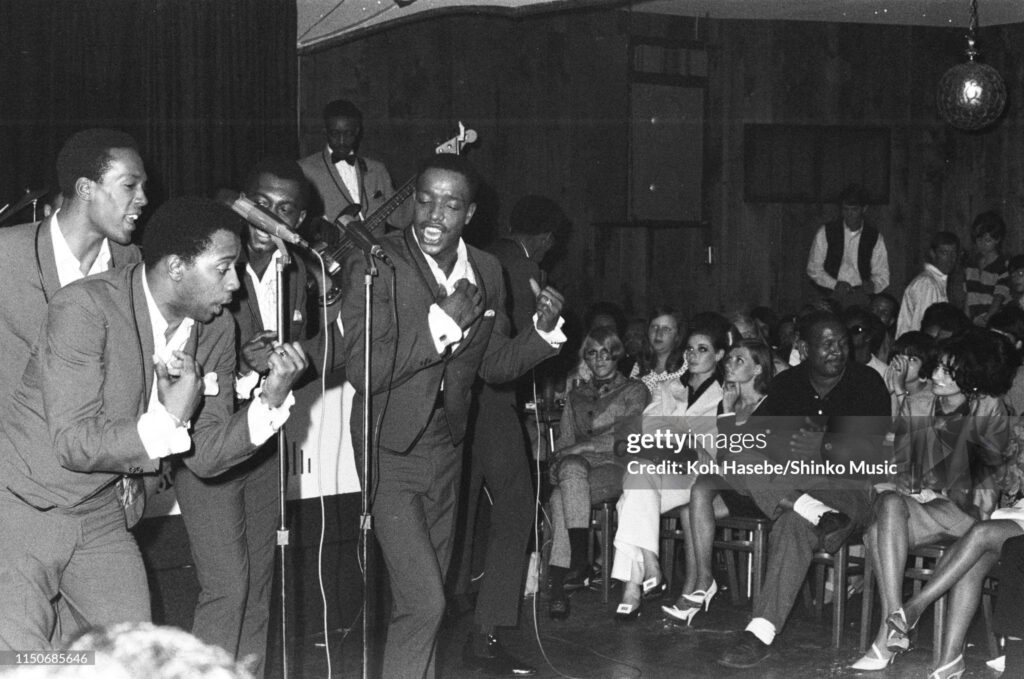
“Get Ready”: A Timeless Anthem of Anticipation and Unconditional Love
Ah, the indelible sound of The Temptations. For those of us who came of age during the vibrant, transformative 1960s, their voices were more than just music; they were the very heartbeat of a generation, a sophisticated symphony of soul that defined an era. Among their illustrious catalogue, few songs capture the essence of their artistry and the sheer joy of Motown quite like “Get Ready.” Released in 1966, this masterpiece immediately struck a chord, soaring to the coveted number one spot on the U.S. Billboard R&B Singles chart, while also making a respectable showing on the pop charts, peaking at number 29 on the Billboard Hot 100. Its enduring appeal was further cemented when it achieved a remarkable resurgence in the UK, reaching number 10 on the UK Singles Chart upon its re-release in 1969, proving that some melodies simply transcend borders and time.
The story behind “Get Ready” is as captivating as the song itself, a testament to the creative friction and genius that often define legendary music. Penned by the incomparable Smokey Robinson, the song was initially met with a surprising degree of resistance from The Temptations themselves. Known for their intricate choreography and dynamic, uptempo performances, the group found Smokey‘s composition, with its relatively slower tempo and more deliberate groove, a departure from their established style. It wasn’t the kind of track that lent itself easily to their signature synchronized dance moves, and there was a genuine concern that it wouldn’t resonate with their energetic live audiences. Legend has it that Smokey, ever the visionary, had to insist, even plead, for them to record it. He believed in the song’s inherent magic, its subtle power, and its potential to showcase a different facet of their vocal prowess. He was, of course, utterly right. The track became the title song for their 1966 album, ‘Gettin’ Ready’, and solidified its place in music history.
Lyrically, “Get Ready” is a declaration of readiness, a confident and heartfelt invitation to love. It’s a man telling his beloved to prepare for a profound, all-encompassing connection. From the opening lines, “I’m gonna make you love me / I’m gonna make you love me,” there’s an undeniable sense of purpose and unwavering devotion. It speaks to that exhilarating moment in a relationship when anticipation is at its peak, when two souls are on the cusp of truly intertwining. It’s not just about physical readiness, but emotional and spiritual alignment—a promise that the speaker is prepared to give everything, and expects the same in return. The song’s meaning resonates deeply with anyone who has ever felt that potent blend of excitement and certainty when embarking on a new, promising chapter of love. It’s a call to arms for the heart, a joyous affirmation that true love is worth waiting for, and worth preparing for.
For those of us who lived through those golden years, “Get Ready” isn’t merely a song; it’s a time machine. It transports us back to dimly lit dance halls, to the sweet scent of youthful romance, to the unmistakable sound of vinyl spinning on a turntable. The intricate harmonies of Eddie Kendricks‘ soaring falsetto, David Ruffin‘s raw, passionate lead, and the impeccable backing vocals of Melvin Franklin, Paul Williams, and Otis Williams create a tapestry of sound that is both sophisticated and utterly accessible. It’s a reminder of Motown’s unparalleled ability to craft songs that were not only catchy but also imbued with genuine emotion and a timeless sense of elegance. The song’s enduring appeal lies in its universal message and its flawless execution, a testament to the genius of Smokey Robinson and the unparalleled talent of The Temptations. It evokes memories of simpler times, perhaps of a first dance, a shared glance, or the hopeful promise of a love yet to fully blossom. It’s a soundtrack to our youth, a vibrant echo from an era when music was truly transformative, weaving itself into the very fabric of our lives and becoming part of who we are.